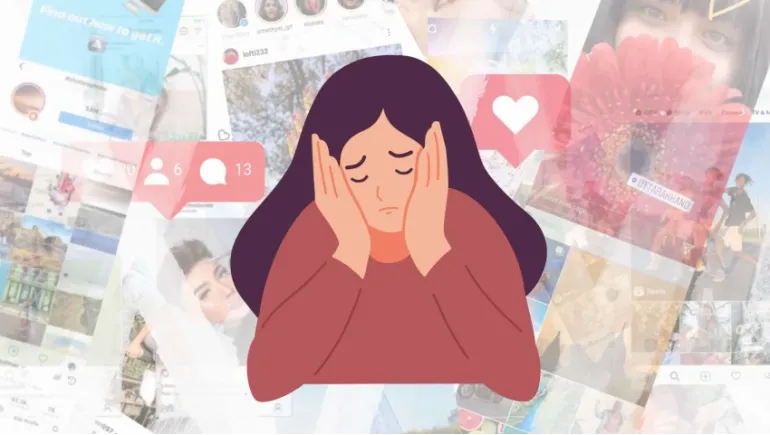
Social media has changed the way we connect, communicate, and consume information. But behind the filters and likes, there’s a growing concern: is all this scrolling and sharing taking a toll on our mental health?
Research suggests that social media can both help and harm—depending on how, why, and how much we use it. Let's break down what the evidence actually says.
One of the most cited concerns is social media’s link to anxiety and depression. Multiple studies have found a correlation between high usage and poor mental health outcomes, especially in teens and young adults.
A 2019 study published in JAMA Psychiatry found that adolescents who spent more than three hours per day on social media were at a higher risk of developing mental health issues like anxiety and depression. That risk increased as time spent online went up.
It’s not just the time, though—it’s what we’re doing with it.
Platforms like Instagram, TikTok, and Snapchat are designed around appearance, attention, and approval. Users constantly compare their lives to others’ highlight reels. This creates a distorted reality—one where everyone else seems happier, more successful, and more attractive.
That comparison triggers feelings of inadequacy, loneliness, and low self-esteem.
Psychologists call it "upward comparison"—comparing yourself to people who seem better off. Over time, it wears you down, especially if you're already feeling insecure or isolated.
Social media is engineered to keep us coming back. Likes, comments, and shares act like little rewards, triggering dopamine—the brain’s “feel-good” chemical.
This feedback loop can lead to compulsive checking, constant refreshing, and even withdrawal symptoms when we’re offline. It’s the same mechanism behind gambling and other behavioral addictions.
It’s not an exaggeration to say some people are addicted to their phones. And addiction—digital or otherwise—almost always harms mental health.
Late-night scrolling isn't just a time-suck—it’s a sleep killer. Blue light from screens disrupts melatonin production, making it harder to fall asleep and stay asleep.
Lack of sleep contributes to irritability, low mood, reduced concentration, and anxiety. Over time, it compounds.
Add to that the pressure to always stay updated, reply to messages, and maintain an online presence, and social media can start to feel like a 24/7 job.
The mental health crisis among teens is rising fast—and many experts believe social media is playing a role.
According to the CDC, rates of depression and suicidal ideation in teens have increased dramatically since 2010—right around the time smartphone and social media use surged.
Girls, in particular, seem more affected—likely due to higher exposure to online harassment, body image pressures, and social comparison.
While social media isn't the only factor, it’s a significant one that can amplify other stressors.
It’s easy to blame social media entirely, but the truth is more nuanced. Not everyone who uses Instagram or TikTok struggles with mental health. In fact, social media can offer connection, support, and community—especially for marginalized groups or people with limited in-person social networks.
Support groups, mental health advocacy pages, and positive content can offer real value. Some people find comfort, motivation, or inspiration online.
So what makes the difference?
It comes down to how you use it.
Scrolling through endless feeds without interacting is called passive use. This type of engagement is more likely to trigger envy, isolation, and low mood.
On the other hand, active use—commenting, messaging, sharing content, or engaging with friends—can have neutral or even positive effects.
Passive consumption isolates. Active connection can build relationships.
It’s not just about screen time—it’s about screen quality.
If social media use is making you feel consistently anxious, depressed, or isolated, it might be time to talk to someone. A therapist can help you build boundaries, shift thought patterns, and find healthier coping strategies.
Social media may be part of the problem, but there’s always a solution—and support.
So, is social media bad for mental health?
It can be—but it doesn’t have to be.
The key is awareness and intention. Used passively, excessively, or with a toxic feed, it can absolutely harm your mental health. But used consciously, socially, and in moderation, it doesn’t have to.
Social media is a tool—and like any tool, its impact depends on how you use it.
Protect your peace. Curate your digital space. And remember: just because everyone else is online 24/7 doesn’t mean you have to be.












Comments
There are no comments for this Article.